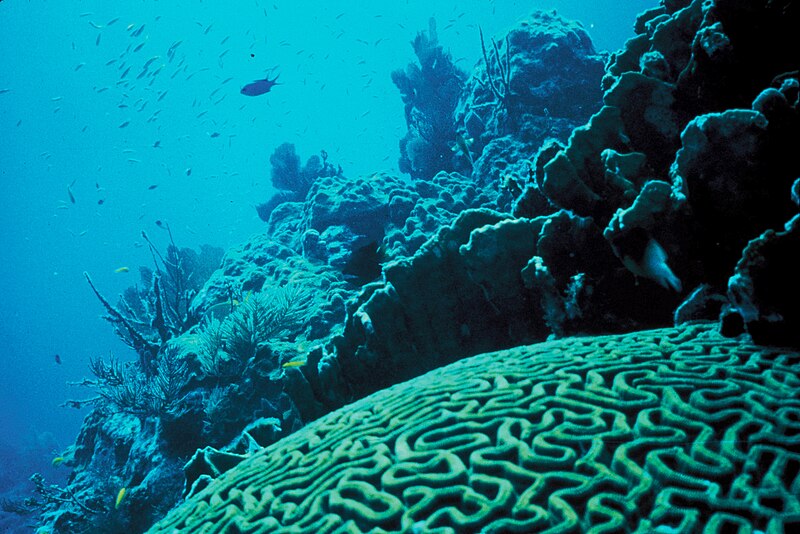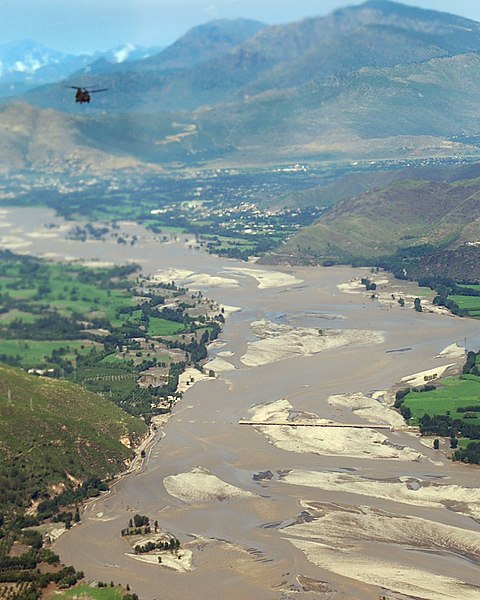 If you’ve ever had to catch a fish out of your aquarium (or watched the employees at your fish stores catch the fish for you to take home), you can probably appreciate how difficult it can be. These are in relatively small glass or acrylic boxes however; catching a fish from its own home turf is exponentially more difficult! Back when the marine aquarium trade was first gaining popularity in the mid-20th century, collection was usually laid at the feet of local islanders and fishermen, especially in the small Indo-Pacific island communities that may have had little other source of income. They naturally tried to optimize their collection and profits, but unfortunately this often came at the cost of the animals they were retrieving. Techniques like blast fishing (discussed in a May 2010 blog) and the use of cyanide became common. While not as physically destructive as blast fishing and bombs, cyanide collection was just as deadly. It is now illegal and banned in many areas, but enforcement can be spotty in these isolated areas and some of these irresponsible practices still occur. Read More »
If you’ve ever had to catch a fish out of your aquarium (or watched the employees at your fish stores catch the fish for you to take home), you can probably appreciate how difficult it can be. These are in relatively small glass or acrylic boxes however; catching a fish from its own home turf is exponentially more difficult! Back when the marine aquarium trade was first gaining popularity in the mid-20th century, collection was usually laid at the feet of local islanders and fishermen, especially in the small Indo-Pacific island communities that may have had little other source of income. They naturally tried to optimize their collection and profits, but unfortunately this often came at the cost of the animals they were retrieving. Techniques like blast fishing (discussed in a May 2010 blog) and the use of cyanide became common. While not as physically destructive as blast fishing and bombs, cyanide collection was just as deadly. It is now illegal and banned in many areas, but enforcement can be spotty in these isolated areas and some of these irresponsible practices still occur. Read More »
Category Archives: Fish Health
Feed SubscriptionRecent Aquatic News – Three-eyed Fish Found and Other Stories
 Over the past few weeks, there have been lots of great news stories about aquariums, fish and the ocean – too many to each get their own blog! Some are funny, some amazing, some sad. Here is a run-down of some of my favorites from the aquatic sphere.
Over the past few weeks, there have been lots of great news stories about aquariums, fish and the ocean – too many to each get their own blog! Some are funny, some amazing, some sad. Here is a run-down of some of my favorites from the aquatic sphere.
Beluga to Reunite with Mariachi Band
This is one of the older stories, from the ancient history of August, but I am in love with the video that sparked it. A mariachi band was playing for a wedding at the Mystic Aquarium back in July and had a jam session with the aquarium’s resident Beluga, Juno. The aquarium reunited the band with its new fan at a cocktail party. The party is long gone, but that adorable video is still around! Read More »
Selecting Fish Suitable for Small Saltwater Aquariums
 The Marine Bio Staff at That Fish Place gets a lot of questions regarding fish husbandry (what can I put in my tank and will it get along with…), especially as technology is advancing and smaller aquariums are becoming easier and easier to maintain. Freshwater options tend to be much easier – small schooling fish like tetras, danios, guppies and others have been aquarium staples for ages – but smaller saltwater tanks can be much trickier to populate. Aside from the tempting beauty of many larger or more aggressive fish, even smaller fish from the coral reefs have more territorial personalities than their freshwater counterparts. Many popular fish either grow far too large, aggressive or territorial for the smaller aquariums that are becoming very popular.
The Marine Bio Staff at That Fish Place gets a lot of questions regarding fish husbandry (what can I put in my tank and will it get along with…), especially as technology is advancing and smaller aquariums are becoming easier and easier to maintain. Freshwater options tend to be much easier – small schooling fish like tetras, danios, guppies and others have been aquarium staples for ages – but smaller saltwater tanks can be much trickier to populate. Aside from the tempting beauty of many larger or more aggressive fish, even smaller fish from the coral reefs have more territorial personalities than their freshwater counterparts. Many popular fish either grow far too large, aggressive or territorial for the smaller aquariums that are becoming very popular.
So what fish should you look for? Here are some suggestions for smaller aquariums (30 gallons and under for the purpose of this blog). Keep in mind that these are general recommendations and guidelines; not all the fish in these groups are appropriate for smaller tanks, so if you find one you like, make sure it’s still compatible for your situation. Read More »
Keeping Tropical Fish in Outdoor Ponds – Dangers and Preparing for the End of the Summer Season
 Hi, Jose here. Last time, I blogged about keeping tropicals outside and how the sunlight, natural foods and warm temperatures can benefit tropical species. While the benefits are great, there are also some cautions to consider. This time I’d like to talk about some of the dangers and pests that may wreak havoc on our poor little fishies.
Hi, Jose here. Last time, I blogged about keeping tropicals outside and how the sunlight, natural foods and warm temperatures can benefit tropical species. While the benefits are great, there are also some cautions to consider. This time I’d like to talk about some of the dangers and pests that may wreak havoc on our poor little fishies.
I was lucky not to have my pond visited by pests, but local stray cats, opossums, raccoons, snakes or predatory birds that may decide to visit your pond at any time. Even bugs like dragonfly nymphs can prey on young and small fish. Ample water movement and surface ripples are usually enough to deter them, but more effort may be needed to deter larger predators. There are some easy ways that you can help to protect your fish while they enjoy their outdoor summer vacation. Personally, I would recommend the live plants. You can use floating foliage like water lilies, duck weed or hyacinths for cover and protection for your fish. Young fish will also hide in the roots and feed on the small bugs that live in the roots. Another solution is the use of pond netting. The netting can prevent many predators from snatching your fish out of the water. Not very aesthetic, but effective. Read More »
Fish and Floods – How Raging Waters can Benefit Fish
 Anyone who has ever experienced a flood first hand will have very few (if any) positive things to say about the disaster after the water recedes. Recent flooding in the northeast left thousands to bucket mud and sediment from their homes and some lost their homes entirely. Floods for us are rarely a benefit, but for fish and waterways, flooding performs vital work. Despite the unfortunate individuals that find themselves stranded in backwater pools and puddles (most of which are picked off by advantageous predators), the fish that remain or find their way nack to an adequate stream or river can thrive after these events. Lets explore how wild fish respond to flooding and how these events can relate to some species we keep in aquariums.
Anyone who has ever experienced a flood first hand will have very few (if any) positive things to say about the disaster after the water recedes. Recent flooding in the northeast left thousands to bucket mud and sediment from their homes and some lost their homes entirely. Floods for us are rarely a benefit, but for fish and waterways, flooding performs vital work. Despite the unfortunate individuals that find themselves stranded in backwater pools and puddles (most of which are picked off by advantageous predators), the fish that remain or find their way nack to an adequate stream or river can thrive after these events. Lets explore how wild fish respond to flooding and how these events can relate to some species we keep in aquariums.
We see destruction when we see floods occur, but for fish in natural waterways floods provide rather regenerative qualities to the native habitat. The swift water flushes sediment and debris out of pools and runs allowing fish to hide and move about more freely. Depending on severity and degree of the flooding, the layout of streams and rivers can go through dramatic changes. Rushing water can carve new and deeper pools in creek beds. Rotting wood and roots may be washed downstream, but they may be replaced with newly fallen trees and branches which create new places to hide. Sediments may fill in some shallow pools and create new gravel beds and sand bars where fish can feed and reproduce. New sediment beds are also prime real estate for scuds and other macroorganisms to colonize, creating a rich food source for other species. While the fish find refuge in underwater nooks and recesses their community gets a makeover! Trash and pollutants can also be swept away, leaving a cleaner environment once the water clears. Read More »
 That Fish Blog – Aquarium Advice and Information
That Fish Blog – Aquarium Advice and Information
